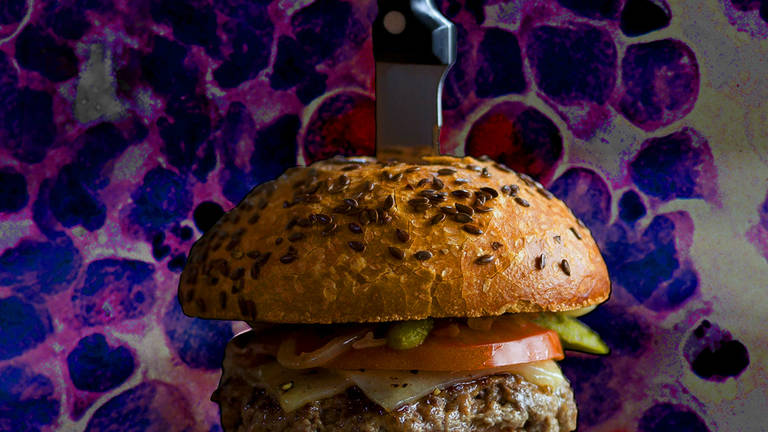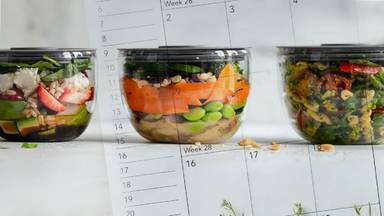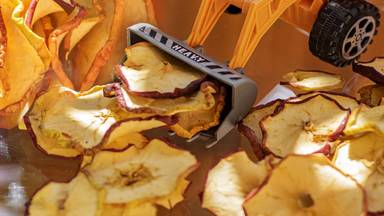
Environmental factors play a significant impact on cancer cell metabolism, according to mounting data. Diet and nutrition are essential environmental factors influencing metabolism, and they have emerged as key factors in regulating cancer cell metabolism. The evidence suggests that following clinically-based diet guidelines can significantly decrease cancer incidence and mortality.
In this article, we discuss these developing concepts in cancer metabolism, as well as different diets that are known to be effective in preventing and treatment of cancer cell metabolism. If you are considering nutrition as a tool to directly target cancer metabolism, it is important to keep in mind that there are currently no guidelines on how to target cancer metabolism directly with nutrition. But the effects of fasting and different diets are examined in some research, we will talk about them in more detail.
Cancer metabolism
The mechanism by which cancer cells produce the energy they require to develop and spread is known as cancer metabolism. Cancer metabolism involves the way cancer cells acquire the energy they need for growth and reproduction by consuming carbohydrates, proteins, and fats from food. The study of cancer metabolism is a key area of research by scientists trying to find a way to stop or reduce the progression of the disease.
Cancer cells require a wide range of nutrition, with subsets of malignancies demonstrating altered glucose metabolism, altered one-carbon metabolism, and greater reliance on amino acid metabolism, among other metabolic pathways.
The importance of diet in preventing cancer
You might be surprised to learn that 30-40% of all cancers can be prevented by simply making changes to a person’s lifestyle and diet!
Excessive intake of sugars and refined flour products, obesity, and nutrient-deficient meals that contribute to impaired glucose metabolism (which leads to diabetes), red meat consumption, an imbalance of omega 3 and omega 6 fats, and inadequate fiber intake can increase the cancer risk.
When people eat a healthy diet with lots of fiber, probiotics, and vegetables and limit their intake of refined sugar, breast, colorectal, and prostate cancers should be reduced by 60-70 percent, and lung cancer could be reduced by 40-50 percent, along with similar reductions in cancers at other parts of the body.(1)
Reduce your sugar intake
Studies show that there is an association between high glycemic load diets and cancer. Eating a lot of food containing sugar may result in obesity. (3) Studies have shown that diets high in refined sugar increase the risk of developing gastric cancer. (3)
Sugars are refined when they are extracted from natural sources such as sugar cane, white sugar, brown sugar, corn syrup, and fruit juice concentrate. They are high in energy and low in nutrients.
Unrefined sugars (such as honey, coconut sugar, agave nectar, maple syrup, unsulphured molasses, brown rice syrup, date sugar, etc.) are also high in energy and contribute to the same problem as refined sugars, but because they undergo less processing, they retain more minerals, antioxidants, and other nutrients.
Also, refined wheat flour contains a lot less fiber (about 78 percent), less vitamin B and vitamin E. So it contributes to a higher spike in blood sugar than whole wheat flour. Being active after eating high-glycemic foods will help prevent a blood sugar spike.
If you want to control your blood sugar, you should check the glycemic index table and limit your intake of high-glycemic foods. The glycemic index measures the body’s blood sugar in response to a specific amount of carbohydrate in a food. (2)
Watch your red meat (Amino acids) intake
Amino acids molecules are the building blocks of proteins. The human body uses amino acids in the process of breaking down food to make protein for survival, but they are also a major fuel source for cancer development.
The growth of cancer cells relies on amino acids in addition to glucose as its source of energy. A major role of amino acids in feeding cancer cells is to supply cancer cells with pathways and provide them with building blocks.(8) Meat, eggs, dairy products, poultry, and animal proteins such as milk and yogurt, are known to have the highest levels of amino acids.
According to the American Cancer Society, a healthy diet should consist of vegetables, fruits, whole grains, beans, and legumes. However, red meat, processed meat, sugar-sweetened beverages, and heavily processed foods should be avoided. A woman should consume 46 grams of protein daily. In general, women should consume 46 grams of protein a day, while men should consume 56 grams.
Try to stay fit
Being overweight or obese increases your risk of developing cancer. Eating too much food and having a high body mass index, also known as BMI,(weight in kilograms divided by your height in meters) are major risk factors for cancer. Obesity is connected to an increased risk of 13 different cancers. These cancers account for 40% of all cancers diagnosed each year in the United States.
- Cancers listed below have a higher death rate associated with obesity:
- Esophagus,
- Colon and Rectum,
- Liver,
- Pancreas,
- Kidney,
- Gallbladder,
- Breast,
- Uterus,
- Cervix,
- Stomach,
- Prostate, and
- Ovarian cancer.
With a diet, you can fight cancer
During the next few paragraphs, we’ll discuss the diets that are known to slow down the growth of cancer cells.
Vegan diet
A vegan diet refers to a diet that abstains from the consumption of animal products like meat, eggs, dairy, fish, and honey. Instead, it is characterized by the consumption of fruits, vegetables, legumes, nuts, grains, and other plant-based products.
Since vegan diets offer increased consumption of cancer-fighting foods such as fruit, whole grains, nuts, vegetables, and seeds, as well as decreased intake of dairy products, red meats, and processed meats, which are known to increase cancer risk, the diet is associated with 15 percent risk reduction in total cancer incidence.(9)
There is no consensus as to whether eliminating all animal products is necessary for a vegan diet to have positive health effects. It has been found, however, that red meat and processed meat can increase the risk of certain types of cancer, including colorectal cancer. Furthermore, people who consume a lot of animal fat are more likely to develop colon cancer.(5)
The downside of vegan diets is that, when compared with omnivorous diets, they can be deficient in calcium and vitamin B12, though this issue can be addressed through proper nutritional advice.
You can reduce the risk of colon cancer by substituting poultry for red meat, whole grains for refined grains, low-fat dairy products for high-fat dairy products, and margarine for butter.
Macrobiotic Diet
Macrobiotic diets consist mostly of whole grains, vegetables, and fruits. Some beans and seeds are also included. Macrobiotic diets are primarily vegetarian and emphasize unprocessed, organic foods. The macrobiotic diet includes 40-60 percent whole cereal grains, 20-30 percent vegetables, and 5-10 percent legumes. Fruit, white fish, seeds, and nuts are also occasionally consumed.
* According to a Macrobiotic diet/lifestyle:
- You should eat only when you’re hungry or drink only when you’re thirsty.
- Use only purified water for cooking and drinking. Avoid drinks that contain flavors, caffeine, or alcohol.
- Whenever possible, it’s better to cook and preserve food using natural materials (such as wood, glass, and china). Microwave ovens and other electric means of cooking should be avoided.
The macrobiotic diet contains a lot of whole soy foods like tofu, which raises concerns regarding hormone-sensitive cancers, especially ER-positive breast cancer.
Despite the lack of a clinical trial examining the impact of soy foods on breast cancer patients after diagnosis, some studies have found that frequent consumption of whole soy foods (one to three servings per day) after diagnosis was associated with a 21% reduction in the risk of breast cancer recurrence and a 15% reduction in breast cancer mortality in both ER-positive and ER-negative breast cancer patients. (12)
Studies on a macrobiotic diet indicate the potential for disease prevention, but there is a need for more studies to be done.
Paleolithic Diet
The Paleolithic diet tries to imitate Stone Age people eating patterns by focusing on foods that were widely available to hunter-gatherers, such as fruits, vegetables, nuts, seeds, meat, and eggs, while avoiding refined carbohydrates, grains, dairy products, legumes, any processed foods and alcohol. (11)
According to the “evolutionary discordance hypothesis,” humans have developed with a fairly steady diet over millennia, and chronic diseases like cancer may result from consuming foods that were available only after the agricultural revolution which people are genetically incapable of digesting.
Despite criticisms of this theory, the Paleolithic diet shares many of the same characteristics as other healthy diets. Furthermore, the diet focuses on eliminating foods that have been shown to increase cancer cell growth. Therefore, the diet may be beneficial for cancer prevention.
Alkaline Diet
The alkaline diet is also known as the alkaline ash diet or acid-alkaline diet. According to proponents of the alkaline diet, most cancers are caused by an acidic environment in the body, and that acid-forming foods are the primary source of this assumed acidosis.
The alkaline diet, which is designed to supply more alkaline ions after digestion, lower acid load, and lessen the pressure on acid-detoxification systems, is high in alkaline ash-forming foods( fruits, vegetables, nuts, and legumes) and low in protein.
In contrast, a western diet, which contains lots of animal products and fewer fruits and vegetable consumption, is highly acid-forming. Meat, dairy, eggs, grains, alcohol, and poultry are considered to be in the acidic foods group.
As the evidence suggests(10), the alkaline diet is highly compatible with cancer patients and survivors dietary recommendations. Thus, it might be appropriate for cancer patients, but not for the reasons that are claimed by the proponents of the diet.
Ketogenic Diet
The ketogenic diet has been used as a therapy for epilepsy since 1920, and recently it is widely known to be an effective method for treating obesity. It is a diet in which carbohydrate intake is highly limited. On a Ketogenic diet, you get most of your calories from protein and fat, and much fewer from carbohydrates and you must avoid the carbs that are easy to digest, like sugars, sodas, and white flour.
Eating a small amount of carbs in a day makes your body switch to burning fats as a source of energy. Blood sugar reduction caused by the keto diet results in improved insulin sensitivity. Therefore, It is known to be helpful in many other conditions related to blood sugar, such as PCOS(polycystic ovary syndrome), diabetes, cancer, cardiovascular disease, and neurological disease.
A Keto diet can also slow down the growth of cancer by lowering the amount of insulin in the body. A recent study suggests that a ketogenic diet can be a promising treatment for patients with cancer by causing glucose starvation of tumor cells. (4)
The effects of food on cancer
The evidence supports that foods do more than nutritioning. There are certain foods that may slow-down the growth of cancer. Garlic and tomatoes are two foods that lower gastric cancer risk when consumed in a diet. Similarly, the vitamin D3 found in fatty fish and fish liver oils, slows down prostate and breast cancer cell growth. (6)
Footnotes
1. https://www.ncbi.nlm.nih.gov/pmc/articles/PMC526387/
2. https://pubmed.ncbi.nlm.nih.gov/12081815/
3. https://pubmed.ncbi.nlm.nih.gov/15033662/
4. https://www.ncbi.nlm.nih.gov/pmc/articles/PMC3826507/
5. https://pubmed.ncbi.nlm.nih.gov/2172820/
6. https://www.ncbi.nlm.nih.gov/pmc/articles/PMC5411786/
7. https://pubmed.ncbi.nlm.nih.gov/15496224/
8. https://www.ncbi.nlm.nih.gov/pmc/articles/PMC4800996/
9. https://pubmed.ncbi.nlm.nih.gov/26853923/
10. https://pubmed.ncbi.nlm.nih.gov/28870946/
11. https://pubmed.ncbi.nlm.nih.gov/21139123/
12. https://pubmed.ncbi.nlm.nih.gov/26212923/









